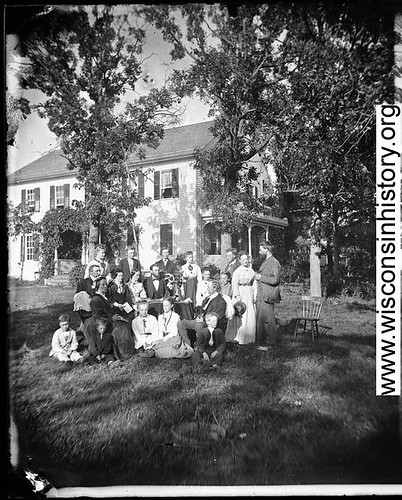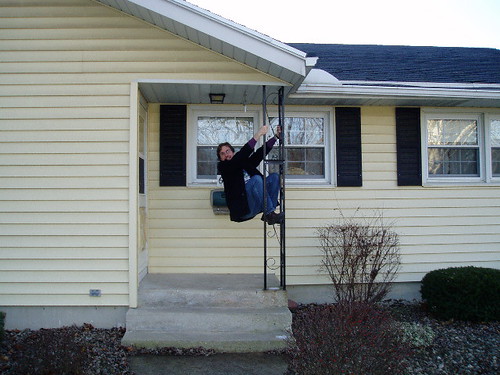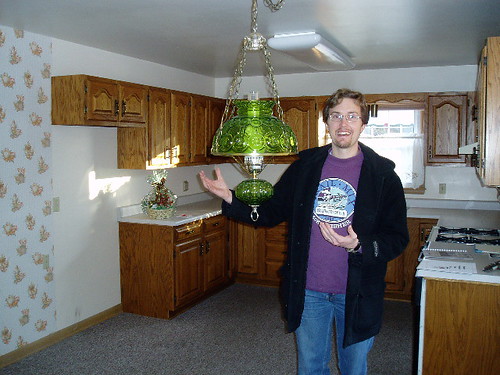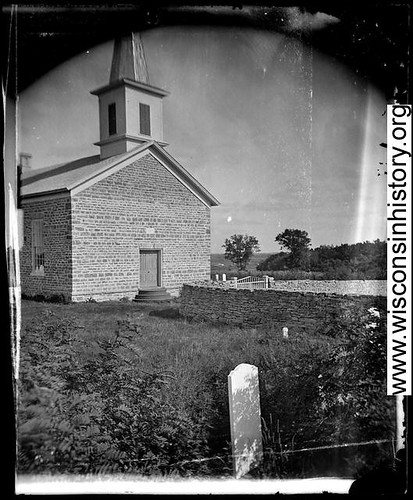Brief notes on the Holy Family readings:
Jesus finds safety in the place Israel was led out of. Re-capitulation?
Joseph's namesake also dreams dreams.
Isaiah in other translations (not NRSV) says that "in all their affliction he was afflicted"
It appears Matthew is helping us sort out two different things said by prophets, re: Bethlehem and Nazareth. Is this his primary intention (if we can know such things), and is the fact of Jesus being a refugee only ancillary to this. To what degree is a capitulatory reading of this narrative helpful (ie. Jesus life and the life of Israel and the way they are one)
Saturday, December 25, 2004
Through Him All Things Were Made
"Long ago God spoke to our ancestors in many and various ways by the prophets, 2but in these last days he has spoken to us by a Son, whom he appointed heir of all things, through whom he also created the worlds. 3He is the reflection of God’s glory and the exact imprint of God’s very being, and he sustains all things by his powerful word." (Hebrews 1)
John 1:3 All things came into being through him (the Word), and without him not one thing came into being.
Although I've preached the Christmas Day texts a few times before, it never ocurred to me until this time that the John and Hebrews texts both hit us with a doctrine firmly spelled out in the Nicene Creed, nameley that "through Christ" "all things were made". This was not a direction I took this Christmas for preaching, but I will focus on it when John 1 next comes up. I have found the doctrine compelling and intriguing, not to mention a true word of Gospel, but have found it also to be a (somewhat) neglected doctrine of the church.
Who has thought more on this and what have you (they) thought?
John 1:3 All things came into being through him (the Word), and without him not one thing came into being.
Although I've preached the Christmas Day texts a few times before, it never ocurred to me until this time that the John and Hebrews texts both hit us with a doctrine firmly spelled out in the Nicene Creed, nameley that "through Christ" "all things were made". This was not a direction I took this Christmas for preaching, but I will focus on it when John 1 next comes up. I have found the doctrine compelling and intriguing, not to mention a true word of Gospel, but have found it also to be a (somewhat) neglected doctrine of the church.
Who has thought more on this and what have you (they) thought?
Monday, December 20, 2004
Sunday, December 19, 2004
Landed
We have now entered, at least for a time, into the ranks of those who own land. The Son of God and the Theotokos may have had no place to lay their heads on Christmas, but we do, and if they stopped by in the next week or, given my understanding of concupiscence (not to mention the sorry state of boxes all over our house), I'd make them sleep in the shack with the lawnmower (that we don't yet own).
Greg recently asked me if living as pilgrim people gives me a headache. I certainly did have a headache the first day of our move, probably exhaustion. But to be on the move with the people of God towards and with Christ in the Spirit (if I can say it that way) is perichoretically exhilirating, even if the minutiae of box packing is not to my like.
We've already started calling up library reserves to our new public library, and this morning I've got messiaen's quatuor pour la fin du temps playing. It was written while he was a POW in Silesia, in a Stalag. Talk about being creative and faithful while a pilgrim in the worst of straits. He's seeking to do "eternity in space", makes his first reference to bird songs, and seeks a "tonal ubiquity". There's another use of a term often abused when speaking of Lutherans. Maybe this afternoon I'll listen to Coltrane and get in some "atonal ubiquity".
Greg recently asked me if living as pilgrim people gives me a headache. I certainly did have a headache the first day of our move, probably exhaustion. But to be on the move with the people of God towards and with Christ in the Spirit (if I can say it that way) is perichoretically exhilirating, even if the minutiae of box packing is not to my like.
We've already started calling up library reserves to our new public library, and this morning I've got messiaen's quatuor pour la fin du temps playing. It was written while he was a POW in Silesia, in a Stalag. Talk about being creative and faithful while a pilgrim in the worst of straits. He's seeking to do "eternity in space", makes his first reference to bird songs, and seeks a "tonal ubiquity". There's another use of a term often abused when speaking of Lutherans. Maybe this afternoon I'll listen to Coltrane and get in some "atonal ubiquity".
Tuesday, December 14, 2004
Remember the knees
in the photo that I posted about a month ago, the knees on both sides of a cute baby named Aksel? Well, those were the knees of the father, and the father has now been diagnosed with leukemia. For those of you so inclined, please pray for Aksel's dad Mike and his family. Thank you.
Monday, December 13, 2004
The Christ-Haunted South
For some time now I've been paying attention to the writers of the American Catholic Renascensce. Walker Percy, Flannery O'Connor, Thomas Merton, & Dorothy Day were the first grouping. Paul Elie's book on these four is splendid (The Life You Save May Be Your Own). He weaves the four life stories together in a way that is surprising yet readable, and by the end you're convinced they're a "school" that you hadn't thought together before.
Prior to reading Elie, I had slowly made my way through O'Connor's novels, had read nothing of Percy, pieces of Merton, and heard alot about Day. Elie's book performed the work many books like his hope for- to send you off reading the writings of those you've read about.
I discovered that Day's autobiography is stellar, and reads much like Merton's. The two together bring hope and joy in the Catholic faith. Percy is a little harder to get my head around, and I have to take his novels in small doses. O'Connor is still my favorite, although her you need to read so slowly.
Recently I picked up Ralph Wood's book on O'Connor, and he has convinced me that the Catholic Renascence is also closely connected to, although not identical with, the flourishing of Southern writers in the mid-20th century- Faulkner, O'Connor, Allen Tate and the other Southern Agrarians. The first I'd ever reflected on and heard of the Southern Agrarians was in an essay by Wendell Berry, a second generation of that southern crew. He is also a great Christian writer of sorts, although not Catholic.
Wood characterizes the South as Christ-haunted rather than Christ-centered, an evocative description. I wonder what it means to live in a world like that. I wonder what Lutheranism looks like there? I know very little about Lutheranism in the South. Is anyone who reads this Lutheran and from the South?
Prior to reading Elie, I had slowly made my way through O'Connor's novels, had read nothing of Percy, pieces of Merton, and heard alot about Day. Elie's book performed the work many books like his hope for- to send you off reading the writings of those you've read about.
I discovered that Day's autobiography is stellar, and reads much like Merton's. The two together bring hope and joy in the Catholic faith. Percy is a little harder to get my head around, and I have to take his novels in small doses. O'Connor is still my favorite, although her you need to read so slowly.
Recently I picked up Ralph Wood's book on O'Connor, and he has convinced me that the Catholic Renascence is also closely connected to, although not identical with, the flourishing of Southern writers in the mid-20th century- Faulkner, O'Connor, Allen Tate and the other Southern Agrarians. The first I'd ever reflected on and heard of the Southern Agrarians was in an essay by Wendell Berry, a second generation of that southern crew. He is also a great Christian writer of sorts, although not Catholic.
Wood characterizes the South as Christ-haunted rather than Christ-centered, an evocative description. I wonder what it means to live in a world like that. I wonder what Lutheranism looks like there? I know very little about Lutheranism in the South. Is anyone who reads this Lutheran and from the South?
Friday, December 10, 2004
koshkonong photos 2

A gathering of ministerial families at the parsonage of Jacob Aaall Ottesen (1825-1904). Pastor Ottesen, seated on the far left with Mrs. Cathinka Doderlein Ottesen to his left, is visited by Pastor Herman Amberg Preus, his wife Caroline Keyser Preus and family. Visible also in this view are Jacob Magelssen, a medical doctor and son of a Lutheran minister in Rock County, Ottesen's son Otto, and Preus's son Christian Keyser. Preus and Ottesen were organizers of the Norwegian Lutheran Synod in Wisconsin in 1853. In anticipation of the 1867 synod meeting in Utica, Ottesen's congregation at Koshkonong built this two-story frame parsonage. (add /whi to the watermark)
Thursday, December 09, 2004
Further Repetitions for those who are dying
The saints are not our way to Christ. Christ is our way to them. This is a pertinent quote re: the saints intercession for us.
A further confession: I am a Lutheran with sympathies for, even interests in, the rosary. This may help those of you reading this who wonder about the saints and prayer and my reflections on the same.
I tell my confirmation group each year that memorization is for when we are dying. Memorization is or can be painful at the time we are doing it, but it is the kind of thing we carry with us to our death bed. If you are ever, heaven forbid, a prisoner of war, trapped in a mine, or on your deathbed unable to see or possibly even hear, it will be the things that you have memorized that will carry with you- to recite the Lord's Prayer, to confess the Apostle's Creed, to dredge up all the echoes of psalms you can possibly remember.
Memorization is for those who are dying. Christians are honest about this. We are dying. Lutherans are hopeful about this. We die and rise daily.
A further confession: I am a Lutheran with sympathies for, even interests in, the rosary. This may help those of you reading this who wonder about the saints and prayer and my reflections on the same.
I tell my confirmation group each year that memorization is for when we are dying. Memorization is or can be painful at the time we are doing it, but it is the kind of thing we carry with us to our death bed. If you are ever, heaven forbid, a prisoner of war, trapped in a mine, or on your deathbed unable to see or possibly even hear, it will be the things that you have memorized that will carry with you- to recite the Lord's Prayer, to confess the Apostle's Creed, to dredge up all the echoes of psalms you can possibly remember.
Memorization is for those who are dying. Christians are honest about this. We are dying. Lutherans are hopeful about this. We die and rise daily.
Wednesday, December 08, 2004
Advocate for Refugees
Feel free to use the following template to compose a letter to your senator or representative:
Dear [Representative/Senator],
I believe that the practice of confining refugees to camps and segregated settlements and denying their basic human rights is wrong. Refugees should be free to exercise all the human rights in the 1951 Refugee Convention, which include freedom of movement, the right to work, the right to own property and basic education. Yet more than 7 million of the 12 million refugees in the world today are being warehoused. As the largest donor to agencies assisting refugees, the United States can do something about this problem.
As your constituent, I ask you to co-sponsor a congressional resolution to end refugee warehousing. The Senate has already introduced such a resolution, SRes 449, encouraging the protection of the rights of refugees. This resolution calls upon all countries to end the warehousing of refugees and urges the State Department to actively pursue models of refugee assistance that permit refugees to enjoy all the rights recognized in the Convention. A similar resolution will be introduced in the House of Representatives.
Last year the Bureau of Population, Migration and Refugees at the State Department spent $933 million in refugee assistance, the majority of which goes toward maintaining camp infrastructure and basic material assistance for refugees. This money is appropriated by Congress through the Migration and Refugee Assistance (MRA) and Emergency Migration and Refugee Assistance (ERMA) accounts in the Foreign Operations budget. A significant proportion of these accounts goes toward U.S. contributions to the United Nations High Commissioner for Refugees (UNHCR). Less than 1% of the funds from these accounts went toward the realization of refugee rights in the form of direct assistance to host countries or to innovative human rights protection programming. Please help shift the focus of how this money is currently being spent on confinement and dependency by moving the State Department and UNHCR toward a rights-based approach that promotes the freedom and self-sustainability of refugees.
Passing the congressional resolution against refugee warehousing is one step toward helping refugees live their lives in freedom and dignity. The next step is to hold those agencies receiving US funding through the refugee assistance accounts in the foreign operations budget accountable to the promotion and realization of refugee rights.
Thank you for your consideration of this most important issue. I look forward to learning what action you plan to take on this matter.
Sincerely,
[Your name]
Dear [Representative/Senator],
I believe that the practice of confining refugees to camps and segregated settlements and denying their basic human rights is wrong. Refugees should be free to exercise all the human rights in the 1951 Refugee Convention, which include freedom of movement, the right to work, the right to own property and basic education. Yet more than 7 million of the 12 million refugees in the world today are being warehoused. As the largest donor to agencies assisting refugees, the United States can do something about this problem.
As your constituent, I ask you to co-sponsor a congressional resolution to end refugee warehousing. The Senate has already introduced such a resolution, SRes 449, encouraging the protection of the rights of refugees. This resolution calls upon all countries to end the warehousing of refugees and urges the State Department to actively pursue models of refugee assistance that permit refugees to enjoy all the rights recognized in the Convention. A similar resolution will be introduced in the House of Representatives.
Last year the Bureau of Population, Migration and Refugees at the State Department spent $933 million in refugee assistance, the majority of which goes toward maintaining camp infrastructure and basic material assistance for refugees. This money is appropriated by Congress through the Migration and Refugee Assistance (MRA) and Emergency Migration and Refugee Assistance (ERMA) accounts in the Foreign Operations budget. A significant proportion of these accounts goes toward U.S. contributions to the United Nations High Commissioner for Refugees (UNHCR). Less than 1% of the funds from these accounts went toward the realization of refugee rights in the form of direct assistance to host countries or to innovative human rights protection programming. Please help shift the focus of how this money is currently being spent on confinement and dependency by moving the State Department and UNHCR toward a rights-based approach that promotes the freedom and self-sustainability of refugees.
Passing the congressional resolution against refugee warehousing is one step toward helping refugees live their lives in freedom and dignity. The next step is to hold those agencies receiving US funding through the refugee assistance accounts in the foreign operations budget accountable to the promotion and realization of refugee rights.
Thank you for your consideration of this most important issue. I look forward to learning what action you plan to take on this matter.
Sincerely,
[Your name]
Concerning the Spirituality of Repetition
Lutherans like to repeat themselves. The most obvious liturgical example of this is our preference for the three-year Sunday lectionary, the two-year daily lectionary, the staidness of ecumenical liturgy, as well as our increased commitment to weekly Eucharistic worship.
But the tendency towards repetition runs deeper than that. We have tended to be, like Catholics, people who repeat the Lord's Prayer and the Creed. We may not pray these prayers in the context of the Rosary, but we are called upon in our confessional documents (especially in the Small Catechism) to repeat the Lord's Prayer often (before meals, before bed, upon rising, at other times of need), as well as the creed. And Luther reminds us that part of the Christian life is remembering our baptism daily, so that daily a new self would arise.
Which is to say, we are born again daily, we keep repeating birth. When asked, were you born again? the proper response of a Lutheran is, well, yes, today. And yesterday. And the day before that. The repetition of the same is not deadly tedium, but lively Te Deum.
I recently had a homebound parishioner ask me if it was ok that at night she tended to simply repeat the same prayers over and over again, prayers for safety for her family, prayers for her church, prayers for me as her pastor. The thought that she was petitioning God over and over for me and for our congregation, there alone interceding, was gift. I imagine the saints praying and saying the same thing over and over and loving it. There above interceding.
But the tendency towards repetition runs deeper than that. We have tended to be, like Catholics, people who repeat the Lord's Prayer and the Creed. We may not pray these prayers in the context of the Rosary, but we are called upon in our confessional documents (especially in the Small Catechism) to repeat the Lord's Prayer often (before meals, before bed, upon rising, at other times of need), as well as the creed. And Luther reminds us that part of the Christian life is remembering our baptism daily, so that daily a new self would arise.
Which is to say, we are born again daily, we keep repeating birth. When asked, were you born again? the proper response of a Lutheran is, well, yes, today. And yesterday. And the day before that. The repetition of the same is not deadly tedium, but lively Te Deum.
I recently had a homebound parishioner ask me if it was ok that at night she tended to simply repeat the same prayers over and over again, prayers for safety for her family, prayers for her church, prayers for me as her pastor. The thought that she was petitioning God over and over for me and for our congregation, there alone interceding, was gift. I imagine the saints praying and saying the same thing over and over and loving it. There above interceding.
Subscribe to:
Posts (Atom)


